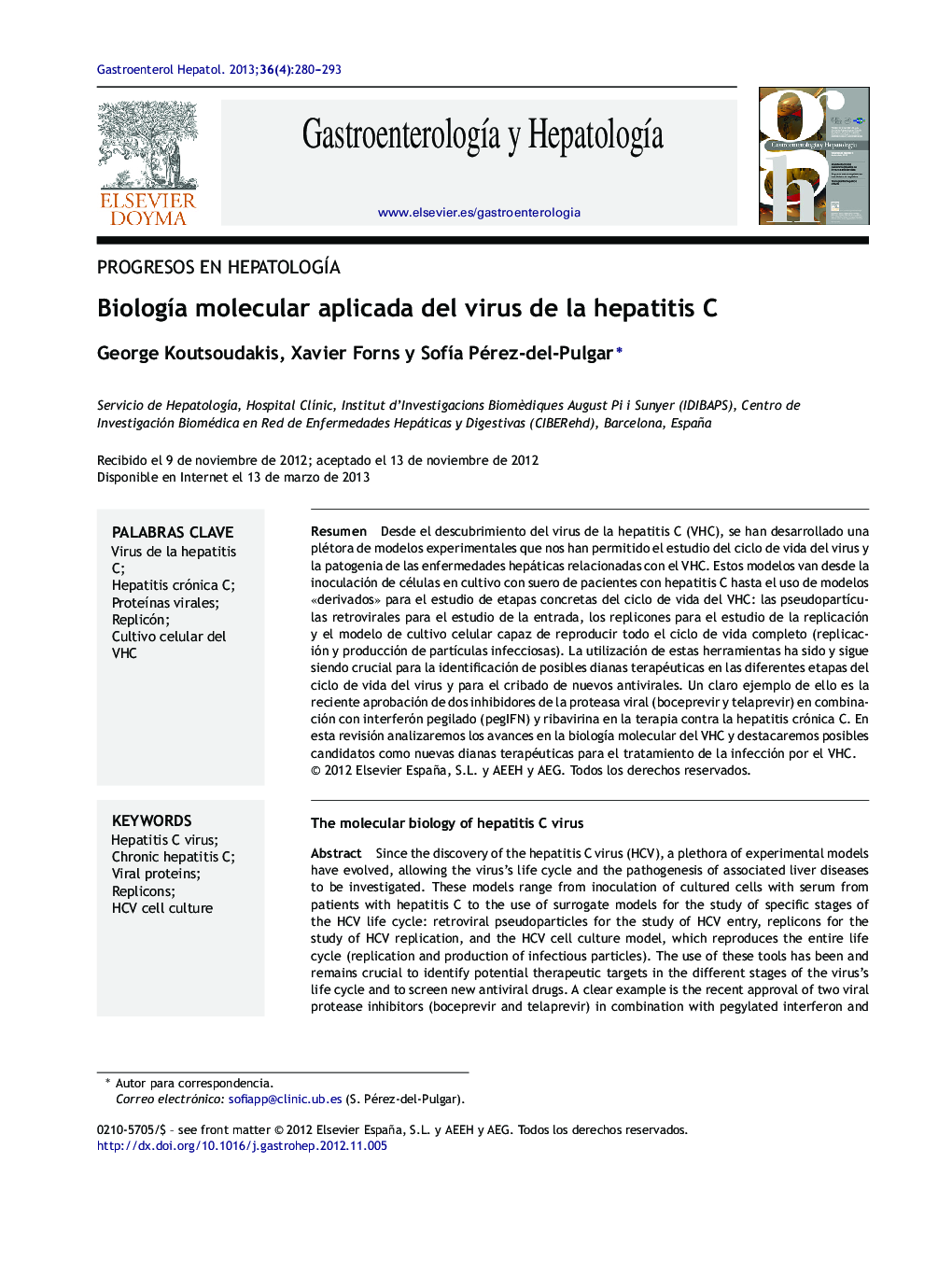| Article ID | Journal | Published Year | Pages | File Type |
|---|---|---|---|---|
| 3288131 | Gastroenterología y Hepatología | 2013 | 14 Pages |
Abstract
Since the discovery of the hepatitis C virus (HCV), a plethora of experimental models have evolved, allowing the virus's life cycle and the pathogenesis of associated liver diseases to be investigated. These models range from inoculation of cultured cells with serum from patients with hepatitis C to the use of surrogate models for the study of specific stages of the HCV life cycle: retroviral pseudoparticles for the study of HCV entry, replicons for the study of HCV replication, and the HCV cell culture model, which reproduces the entire life cycle (replication and production of infectious particles). The use of these tools has been and remains crucial to identify potential therapeutic targets in the different stages of the virus's life cycle and to screen new antiviral drugs. A clear example is the recent approval of two viral protease inhibitors (boceprevir and telaprevir) in combination with pegylated interferon and ribavirin for the treatment of chronic hepatitis C. This review analyzes the advances made in the molecular biology of HCV and highlights possible candidates as therapeutic targets for the treatment of HCV infection.
Keywords
Related Topics
Health Sciences
Medicine and Dentistry
Gastroenterology
Authors
George Koutsoudakis, Xavier Forns, SofÃa Pérez-del-Pulgar,
